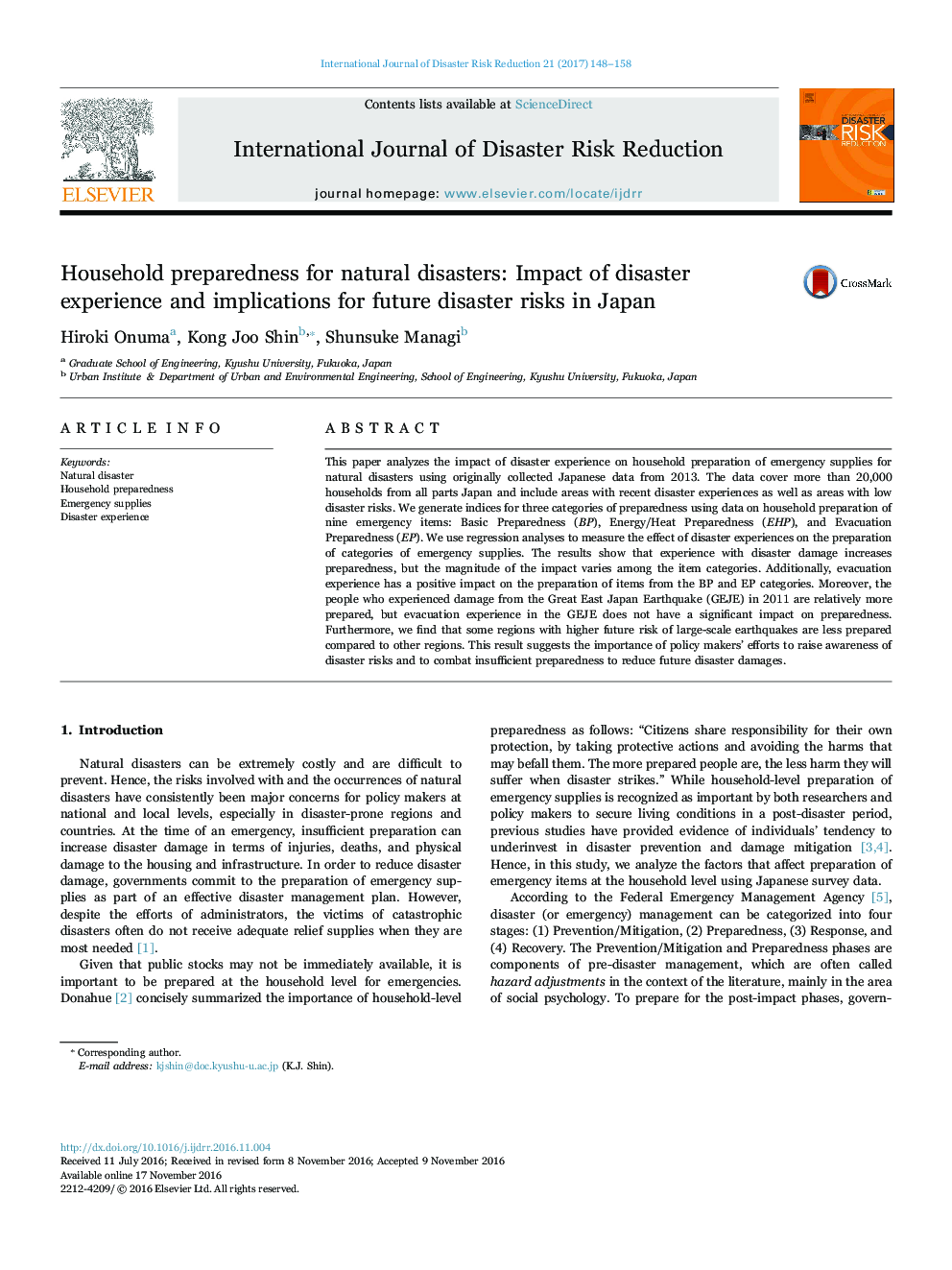| Article ID | Journal | Published Year | Pages | File Type |
|---|---|---|---|---|
| 5116171 | International Journal of Disaster Risk Reduction | 2017 | 11 Pages |
This paper analyzes the impact of disaster experience on household preparation of emergency supplies for natural disasters using originally collected Japanese data from 2013. The data cover more than 20,000 households from all parts Japan and include areas with recent disaster experiences as well as areas with low disaster risks. We generate indices for three categories of preparedness using data on household preparation of nine emergency items: Basic Preparedness (BP), Energy/Heat Preparedness (EHP), and Evacuation Preparedness (EP). We use regression analyses to measure the effect of disaster experiences on the preparation of categories of emergency supplies. The results show that experience with disaster damage increases preparedness, but the magnitude of the impact varies among the item categories. Additionally, evacuation experience has a positive impact on the preparation of items from the BP and EP categories. Moreover, the people who experienced damage from the Great East Japan Earthquake (GEJE) in 2011 are relatively more prepared, but evacuation experience in the GEJE does not have a significant impact on preparedness. Furthermore, we find that some regions with higher future risk of large-scale earthquakes are less prepared compared to other regions. This result suggests the importance of policy makers' efforts to raise awareness of disaster risks and to combat insufficient preparedness to reduce future disaster damages.
